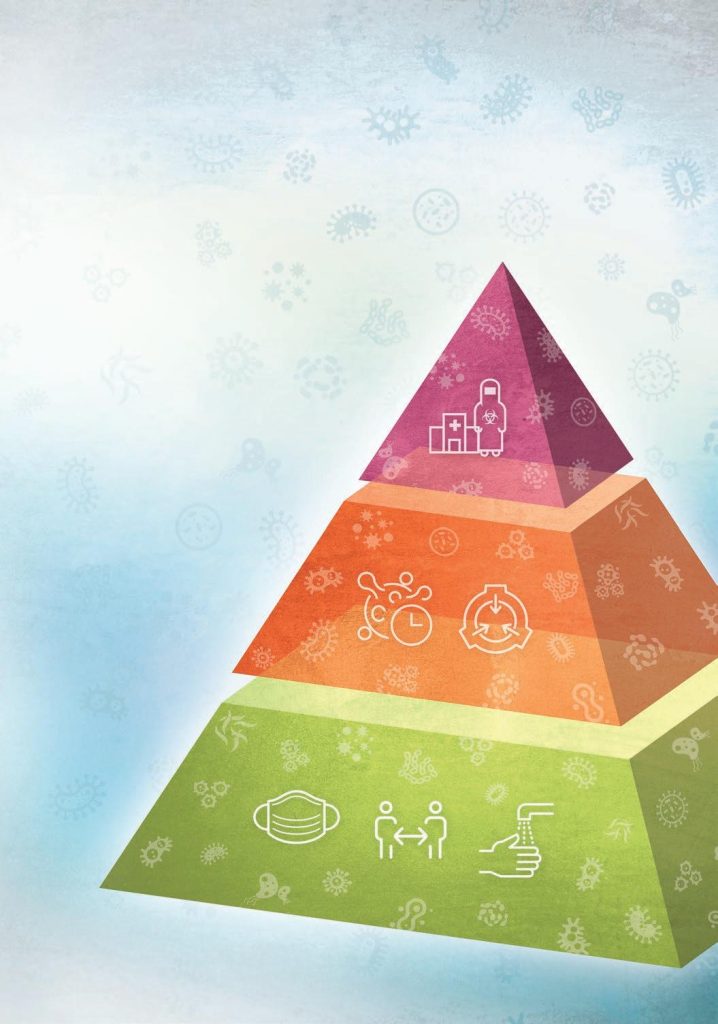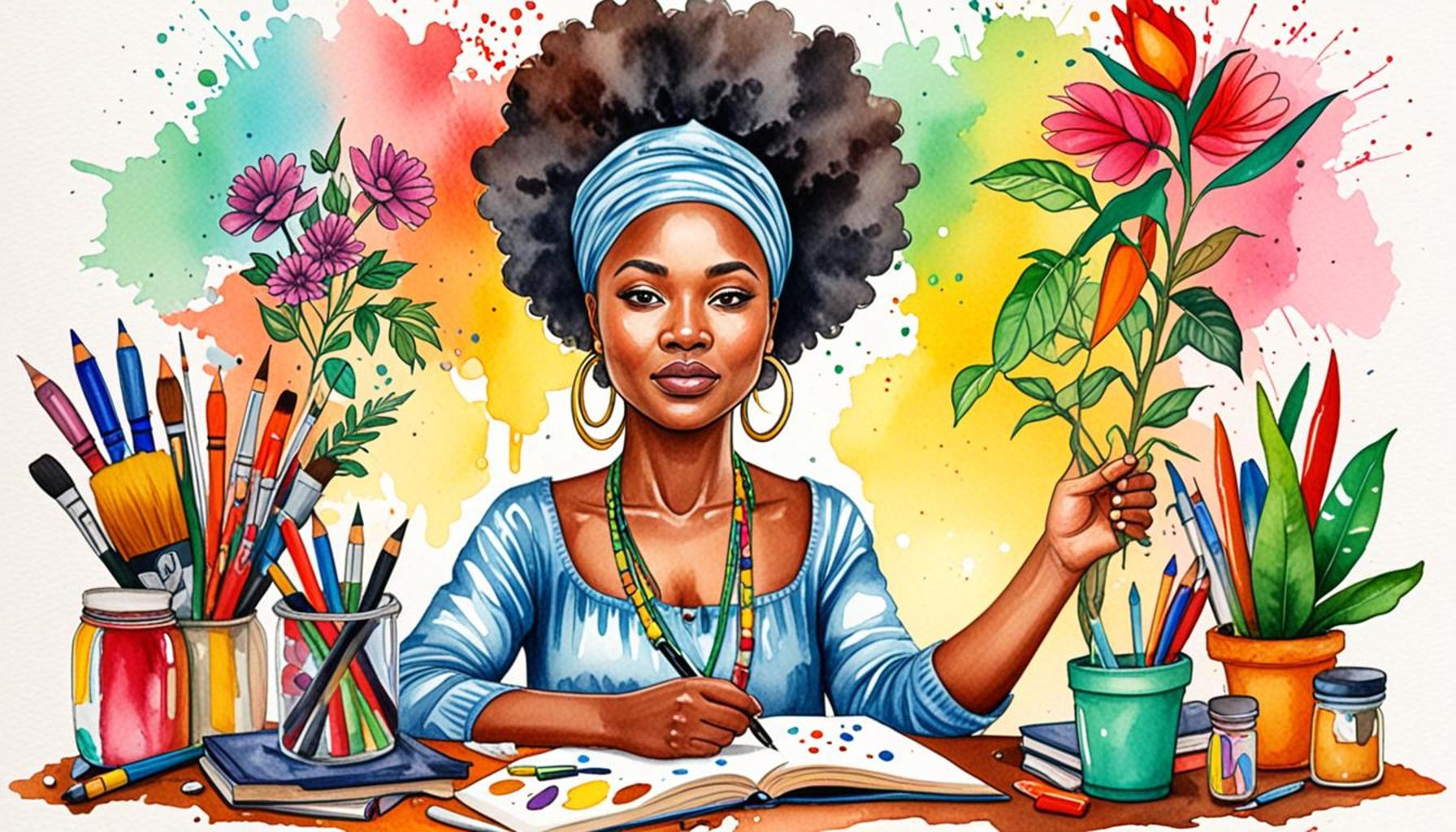Cultivating Resilience in Women: Growth Mindset Strategies for Empowerment in Nigeria

Understanding Resilience in Nigeria
Resilience is the internal strength that enables individuals to recover from setbacks and adapt to change. For women in Nigeria, this quality is particularly essential, considering the numerous challenges they often face, ranging from societal pressures to economic instability. A study by the United Nations indicates that women in Nigeria are disproportionately affected by poverty, with about 50% of them living below the national poverty line. However, cultivating resilience can help them overcome these obstacles, paving the way for personal and community growth.
Personal Development
One of the foundational steps in building resilience is through personal development. This involves enhancing self-awareness and emotional intelligence, which allows women to understand their emotions, recognize their strengths, and acknowledge areas for growth. Programs that focus on personal development, such as those offered by non-governmental organizations (NGOs), provide workshops on self-assessment and emotional regulation. For instance, initiatives like the Women’s Empowerment Programme in Lagos aim to equip women with the skills necessary to manage their emotional responses effectively, thereby promoting resilience in daily life.
Support Systems
Another critical aspect of resilience-building is the presence of support systems. Family members, friends, and community networks play a vital role in providing emotional and practical support. In many Nigerian cultures, the extended family structure creates a robust safety net where individuals can turn for help during tough times. Community initiatives, like the Market Women Association, not only offer financial collaborations but also foster a sense of belonging and collective problem-solving, reinforcing resilience within the community.
Skill Acquisition
To foster resilience, skill acquisition is paramount. Continuous learning in various fields, from financial literacy to vocational training, equips women with the tools needed to navigate economic challenges. Programs tailored for women, such as those focused on digital skills, empower them to engage in the growing online marketplace. For example, organizations like Women in Tech Nigeria are actively bridging the gender gap in technology and entrepreneurship, which has been shown to significantly enhance self-efficacy and confidence levels among women.
Coping Mechanisms
Lastly, implementing effective coping mechanisms can substantially improve resilience. Women are encouraged to adopt strategies such as mindfulness, exercise, and journaling, which can alleviate stress and provide clarity during tough times. Local community centers often offer workshops on stress management and self-care practices. For instance, yoga and wellness classes have gained popularity in urban areas, providing women with a physical outlet to relieve tension and foster mental well-being.

The narrative for women in Nigeria is not solely one of struggle but also one of strength and resilience. By embracing personal development, cultivating support systems, engaging in continuous learning, and adopting effective coping mechanisms, women can transform their challenges into stepping stones for growth. This not only enhances individual lives but also contributes to building a more resilient society where every woman can face the future with strength and determination.
SEE ALSO: Click here to read another article
Strategies for Empowerment through a Growth Mindset
In the journey towards cultivating resilience, adopting a growth mindset is a powerful strategy for women in Nigeria. Stanford psychologist Carol Dweck’s concept of a growth mindset emphasizes the belief that abilities and intelligence can be developed through dedication and hard work. This perspective is essential for women navigating the complexities of life in Nigeria, where structural obstacles and socio-cultural norms can often stifle potential. By fostering a growth mindset, women can transform challenges into opportunities for personal and communal advancement.
Embracing Challenges
One of the first steps in shifting to a growth mindset is embracing challenges rather than avoiding them. Women in Nigeria often face societal expectations that limit their engagement in various professional and personal pursuits. However, those who confront these challenges head-on not only build resilience but also discover their own strengths. Programs like the “Girl Child Initiative” actively encourage young women to participate in science and technology fields, promoting the idea that overcoming obstacles can lead to significant achievements. Celebrating successes, no matter how small, helps women see challenges as stepping stones to greatness.
Learning from Criticism
Another vital aspect is the ability to learn from criticism. Constructive feedback can serve as a benchmark for personal growth. In Nigeria, where harsh judgments can be prevalent, fostering an ability to extract learning from critiques can significantly bolster resilience. Workshops focused on communication skills, run by various NGOs, teach women how to navigate feedback gracefully and use it to propel themselves forward. For instance, the “Women’s Leadership Forum” in Abuja has shown remarkable results, where participants actively engage in peer reviews, transforming criticism into fuel for personal enhancement.
Persistence in the Face of Setbacks
The journey to resilience is fraught with setbacks, yet it is in persistence that true empowerment lies. Nigerian women, already accustomed to battling various challenges, can fortify their resolve by adopting a mindset that views failures as opportunities to learn. Success stories abound in communities where women have turned failed ventures into lessons, ultimately leading to triumph, whether in entrepreneurship or community activism. Initiatives such as the “Women Enterprise Fund” empower women to take calculated risks, knowing that persistence can lead them beyond initial failures.
Key Points for Building a Growth Mindset
- Engage in continuous learning: Seek out educational opportunities that promote skill acquisition.
- Set realistic goals: Establish achievable objectives that can help measure progress.
- Celebrate small victories: Recognize and appreciate incremental successes along the way.
- Collaborate with other women: Build networks that provide encouragement and shared learning experiences.
By adopting these strategies, women in Nigeria can harness the power of a growth mindset to cultivate resilience. They not only improve their own lives but also inspire those around them, challenging societal expectations and paving the way for future generations. Through collective support and shared experiences, a new narrative of empowerment emerges—one that showcases the unyielding strength of Nigerian women who rise above adversity.
The process of cultivating resilience among women in Nigeria is multifaceted, requiring a combination of community support, education, and personal development. One of the key strategies revolves around fostering a strong growth mindset. This concept, popularized by psychologist Carol Dweck, emphasizes the belief that abilities and intelligence can be developed through dedication and hard work. In a Nigerian context, this translates into adopting a proactive approach towards challenges, viewing them as opportunities for learning and growth rather than insurmountable obstacles.Through workshops and mentorship programs, women can be equipped with the tools to embrace this mindset. These initiatives provide a safe space for sharing experiences, overcoming societal barriers, and reinforcing the belief in one’s potential. For many in Nigeria, the societal norms often dictate limitations on women’s roles; however, empowering women through education and support encourages them to challenge these norms actively.Moreover, storytelling plays a pivotal role in building a strong community. By sharing personal success stories and resilience experiences, women can inspire one another and create a culture of mutual support. Documentaries and social media campaigns highlighting the journeys of resilient women in various fields—from business to activism—serve as a reminder of what is possible. Such visibility not only empowers individuals but also shifts societal perceptions of women’s capabilities, ultimately cultivating a stronger, more resilient community.Networking is equally significant. Establishing connections with like-minded individuals and organizations fosters a supportive environment where ideas can flourish and collaboration ensues. Women in Nigeria can leverage local resources and platforms, enhancing their skills and expanding their opportunities for personal and professional growth.As these strategies are employed, it becomes essential to measure their impact. Regular assessments and feedback mechanisms can help in understanding what works and what needs improvement. By enabling women to engage in self-reflection and goal setting, they can track their growth journey and adapt their strategies accordingly.By embracing a culture of resilience and adopting a growth mindset, women in Nigeria can not only empower themselves but also inspire future generations. This transformative approach has the potential to reshape narratives, challenge obstacles, and ultimately foster a society where women are seen as leaders and changemakers.
LEARN MORE: This related article may interest you
Cultivating Community and Support Networks
Building resilience in women through a growth mindset is not solely an individual endeavor; it also heavily relies on the strength of community and support networks. In Nigeria, where cultural ties run deep, leveraging social connections can empower women to overcome challenges and embrace opportunities for growth. Women who cultivate strong networks are able to share resources, knowledge, and experiences, all of which contribute to building resilience.
Mentorship Programs
Mentorship plays a pivotal role in fostering resilience. Programs like the “Mentoring Women for Leadership” initiative provide young women with access to experienced mentors who encourage them to pursue their aspirations. Through these relationships, mentees learn not only from their mentors’ successes but also from their failures. Such insights can be invaluable, helping to shift perceptions of setbacks from being failures to essential learning experiences. By normalizing the challenges that come with growth, mentorship promotes a culture where resilience is woven into the fabric of women’s development.
Peer Support Groups
Peer support groups serve as an essential platform for sharing personal stories and experiences. Initiatives like “Sisterhood of Success” connect women from various backgrounds to discuss their struggles, successes, and strategies for overcoming obstacles. Evidence suggests that participating in these groups significantly boosts confidence and motivation among women. For instance, during workshops organized in Lagos, participants have reported transformative changes in both their personal and professional lives as a result of collective encouragement and shared learning. This communal approach underscores the belief that individual challenges can be addressed within a supportive network, thereby fortifying individual resilience.
Online Communities and Digital Platforms
In today’s digital age, online communities have emerged as a significant resource for women in Nigeria. Platforms such as Facebook Groups and LinkedIn offer spaces where women can connect, network, and share insights. For example, “Nigerian Women in Tech” is an online group that empowers members by facilitating knowledge sharing and providing resources to help women navigate the traditionally male-dominated tech industry. These online networks help women not only gain technical skills but also imbue them with the confidence to challenge existing stereotypes and access new opportunities.
Access to Training and Development
A vital component of cultivating resilience is providing women with access to combat-ready training and skills development. Organizations such as the “Women’s Skills Acquisition and Entrepreneurship Development” program focus on equipping women with practical skills, ranging from financial literacy to various crafts. These skillsets not only enhance their employability but also galvanize the entrepreneurial spirit, enabling women to navigate financial adversities. By providing avenues for continuous learning, women can adapt to changes in the socio-economic landscape, thereby cementing their resilience.
Creating Safe Spaces for Expression
- Workshops and Seminars: Organizing events where women can share their experiences and feelings openly.
- Art as a Medium: Using creative outlets such as writing, theater, and visual arts to process emotions and narrate individual stories.
- Supportive Leadership: Encouraging leaders in various sectors to foster environments of safety and support for women’s voices to be heard.
Through the amalgamation of mentorship, peer support, digital networking, skill acquisition, and safe spaces for expression, women in Nigeria can harness the power of community to bolster their resilience. By actively engaging with these resources, they can dismantle the barriers imposed by societal norms and pave the way for a more empowered future.
CHECK OUT: Click here to explore more
Conclusion
As we explore the multifaceted dimensions of cultivating resilience in women through growth mindset strategies, it becomes evident that the journey towards empowerment in Nigeria necessitates a comprehensive approach. By intertwining the strength of community support with targeted mentorship programs, peer groups, and digital platforms, we create an environment where women can thrive despite adversities. Each program and initiative discussed serves as a building block, helping to dismantle societal barriers and elevate women into positions of confidence and autonomy.
Moreover, the emphasis on continuous skill development and the creation of safe spaces for expression unlocks the potential of women to not only navigate their current challenges but to envision and actualize their aspirations. By fostering a culture that normalizes sharing stories and learning from both triumphs and setbacks, women are empowered to embrace resilience holistically.
The path to strengthened resilience is not just about individual drive but emphasizes the rich tapestry of relationships and networks that women can cultivate. Through active engagement and collaboration, the narrative of women’s empowerment in Nigeria can evolve, reflecting a vibrant community that uplifts its members. The call to action is clear: let us champion these strategies, leverage our resources, and support one another in our quest for resilience, growth, and lasting empowerment.


